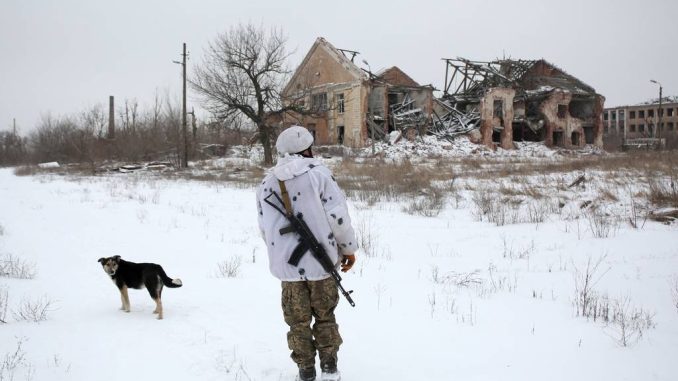

WASHINGTON – U.S. and NATO officials have separately delivered new sets of proposals to the Russian government for sorting out security concerns in Europe, while rejecting Russia’s demand that the alliance forever close its door to Ukraine.
The diplomatic overture is the latest in a dramatic standoff that has summoned the kind of war clouds over the continent not seen for decades. U.S. Secretary of State Antony Blinken and NATO Secretary General Jens Stoltenberg, speaking from Washington and Brussels, respectively, described their written responses to Moscow as a test of whether President Vladimir Putin is seriously interested in a diplomatic solution.
Russia has encircled Ukraine with more than 100,000 troops along the border, and new, combat-ready forces continue to stream into Russian ally Belarus, which also borders Ukraine and NATO member Poland, said Stoltenberg.
Washington’s missive, delivered by the U.S. ambassador in Moscow, is a rebuke to Russian demands for a sphere of influence in which its neighbors would be forced to forswear a future aligned with the West. Also off the table for Washington are Russian requests that NATO remove its troops and equipment from its eastern alliance members Romania and Bulgaria.
The U.S. government has instead offered “transparency measures regarding force posture in Ukraine,” Blinken told reporters on Wednesday. In addition, U.S. and NATO officials proposed new rules for all sides on transparency in military exercises, including closing a loophole that excludes snap exercises from existing reporting requirements, Stoltenberg said.
Washington and Brussels are also offering new talks on arms control, nuclear weapons reduction, rules for intermediate-range missiles in the wider European theater, and a reinvigoration of the NATO-Russia Council.
Blinken said he expects to meet with Russian Foreign Minister Sergey Lavrov in the coming days to discuss the proposals. Stoltenberg told reporters he envisions a “series of meetings” of the NATO-Russia Council on disarmament and military-exercise transparency. He also called on Russia to withdraw its forces from Ukraine, Georgia, and Moldova, where they are deployed without those governments’ consent.
As described, the Western responses — Blinken said Washington’s letter won’t be made public — amount to an amalgamation of what leaders have been telegraphing for weeks. What’s new is a pronounced focus on new talks and new channels of communication in an apparent effort to preempt Russia from arguing the United States and NATO failed to exhaust diplomacy first.
As for increased transparency in military drills, Russia has previously shied away from such measures, instead using ambiguity about exercise objectives to keep NATO guessing. Moscow also has shown little interest in the past to engage in the NATO-Russia Council format.
Sebastian Sprenger is Europe editor for Defense News, reporting on the state of the defense market in the region, and on U.S.-Europe cooperation and multinational investments in defense and global security. He previously served as managing editor for Defense News.


Be the first to comment